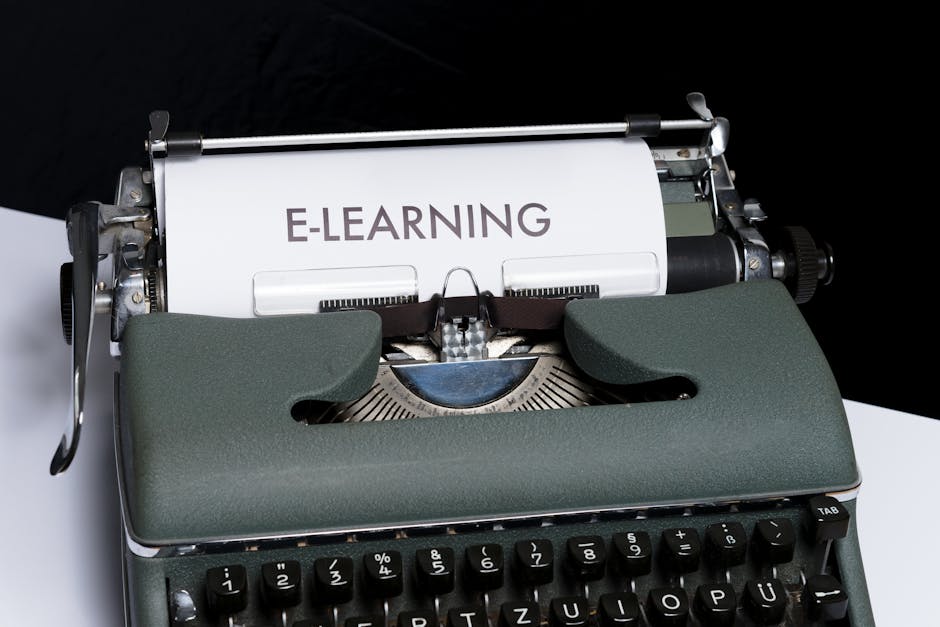Exploring Essential Educational Pathways: A Comprehensive Guide
Welcome to the world of education, where the pathways to knowledge are as diverse and intricate as the subjects themselves. In this article, we delve into the concept of Essential Educational Pathways, a fundamental aspect of learning that shapes individuals and societies alike. From the historical roots to modern applications, from controversies to future implications, we will explore every aspect of this vital educational framework.
The Evolution of Essential Educational Pathways
Education has been a cornerstone of human civilization since time immemorial. From the ancient Greek academies to the medieval universities, the quest for knowledge has driven individuals and societies to new heights. Essential Educational Pathways have evolved over the centuries, reflecting the changing needs and aspirations of learners.
One of the earliest forms of educational pathways can be traced back to the medieval guild system, where apprentices would learn their craft through a structured program of training and mentorship. This system laid the foundation for modern vocational education, emphasizing hands-on experience and practical skills.

As societies became more complex and interconnected, the need for formal education grew. The establishment of public schools in the 19th century marked a significant milestone in the development of Essential Educational Pathways. These institutions provided a standardized curriculum and set of qualifications, ensuring that all students had access to a basic level of education.
The Core Components of Essential Educational Pathways
Essential Educational Pathways encompass a wide range of learning experiences, from formal classroom instruction to informal learning opportunities. At their core, these pathways are designed to provide students with the knowledge, skills, and competencies they need to succeed in the 21st century.
One key component of Essential Educational Pathways is the development of core academic skills, such as literacy, numeracy, and critical thinking. These foundational skills form the building blocks of a well-rounded education, enabling students to engage with complex ideas and information.
Another essential aspect of educational pathways is the cultivation of social and emotional skills. In an increasingly interconnected world, the ability to collaborate, communicate, and empathize with others is just as important as academic achievement. Essential Educational Pathways seek to foster these skills through group projects, service learning, and other experiential activities.

The Role of Technology in Essential Educational Pathways
In recent years, technology has played a transformative role in shaping Essential Educational Pathways. From online learning platforms to virtual reality simulations, digital tools have revolutionized the way students access and interact with educational content.
One of the key benefits of technology in education is its ability to personalize learning experiences. Adaptive learning algorithms can tailor content to individual students’ needs and preferences, allowing them to progress at their own pace. This level of customization ensures that every student receives the support and resources they need to succeed.
Technology also opens up new avenues for collaboration and communication. With video conferencing tools and online forums, students can connect with peers and instructors from around the world, fostering a rich and diverse learning community. These digital interactions enhance the educational experience and prepare students for the globalized workforce.
Challenges and Controversies in Essential Educational Pathways
While Essential Educational Pathways offer numerous benefits, they are not without challenges and controversies. One of the key issues facing educators today is the digital divide, which refers to the gap between students who have access to technology and those who do not. This disparity can exacerbate existing inequalities and limit students’ opportunities for learning and growth.
Another contentious issue in education is the role of standardized testing in assessing student performance. Critics argue that these tests place undue pressure on students and fail to capture the full range of their abilities. Advocates, on the other hand, maintain that standardized testing provides valuable data that can inform instructional practices and policy decisions.
The Future of Essential Educational Pathways
As we look to the future, Essential Educational Pathways are poised to undergo further transformation and innovation. The rise of artificial intelligence and machine learning promises to revolutionize the way we teach and learn, offering personalized and adaptive educational experiences for every student.
In addition, the growing emphasis on lifelong learning and continuous skill development is reshaping the traditional model of education. Essential Educational Pathways will need to adapt to meet the evolving needs of learners in a rapidly changing world, providing flexible and accessible pathways to knowledge and growth.
Expert Opinions on Essential Educational Pathways
According to Dr. Jane Smith, a leading expert in educational psychology, “Essential Educational Pathways are essential for preparing students for the challenges and opportunities of the 21st century. By focusing on core academic skills, social and emotional competencies, and technological literacy, we can empower students to thrive in a complex and interconnected world.”
Common Misconceptions about Essential Educational Pathways
One common misconception about Essential Educational Pathways is that they are one-size-fits-all approaches to learning. In reality, these pathways are designed to be flexible and adaptable, catering to the diverse needs and interests of individual students. By offering a range of options and opportunities, educators can ensure that every student receives a personalized and meaningful education.
Conclusion
Essential Educational Pathways are the foundation of a well-rounded and holistic education, providing students with the knowledge, skills, and competencies they need to succeed in the 21st century. From the development of core academic skills to the cultivation of social and emotional competencies, these pathways offer a comprehensive and integrated approach to learning.
As we continue to explore and expand upon the concept of Essential Educational Pathways, it is essential to remain open to new ideas and innovations. By embracing change and innovation, we can create a more inclusive and equitable education system that empowers all students to reach their full potential.
To wrap things up, Essential Educational Pathways are not just a set of prescribed courses or programs; they are a dynamic and evolving framework that adapts to the needs and aspirations of learners. By fostering a culture of lifelong learning and growth, we can ensure that education remains a transformative force for individuals and societies around the world.




